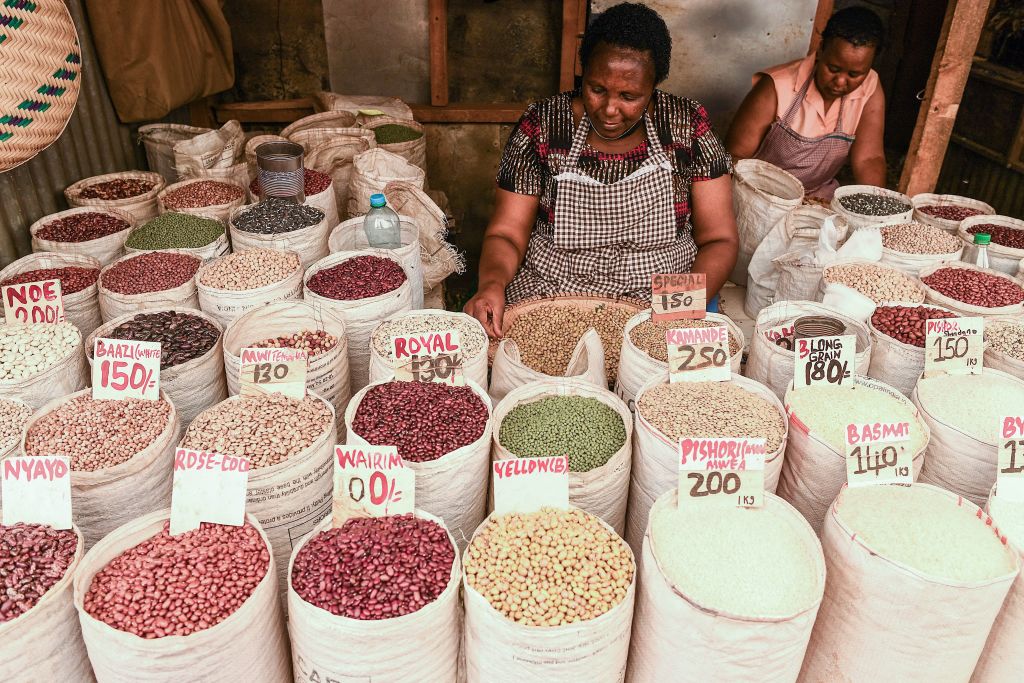One Year On, Russia’s War on Ukraine Still Causing Pain in Africa
ADF STAFF
Hardly a meal goes by that people don’t feel the effects of Russia’s war on Ukraine.
One year after Russia’s invasion, food prices remain elevated and inflation is devouring the budgets of consumers, governments and relief agencies.
In Kenya, the cost of cooking oil, fuel, cooking gas and other basic commodities spiked and was followed by price increases on common foods such as corn meal, bread and chapati.
For many, the prices have made some foods unaffordable.
The Kenya Institute for Public Policy Research and Analysis said 14.5% of all food consumed in Kenya in 2022 was imported, including 67% of its wheat from Russia and 22% from Ukraine.
“Food imports put Kenya in a vulnerable position regarding economic shocks in the global market,” the institute said in an August 2022 report.
“The Russia-Ukraine war has led to a surge in fuel prices in Kenya, leading to high production and transportation costs and thus affecting the distribution of food commodities.”
The effects of the war are rippling throughout the continent. From higher costs for energy and goods to widespread food shortages, African countries are paying a heavy price.
For the matriarch of a working-class family in Cairo, shopping for food has become a regular headache, as prices have risen by more than 48% in the last year.
With just her husband’s small monthly pension, equivalent to $97, Magda has struggled to feed her family.
“It’s impossible to support eight people with 3,000 Egyptian pounds,” she told France24 television. “Everything is more expensive. Prices have exploded. Chicken now costs 95 Egyptian pounds. Everything has increased. I don’t buy meat anymore.”
Russia is the world’s largest exporter of fertilizer, a significant amount of which goes to Africa. Prices have soared over the course of Russia’s attack on Ukraine.
Many Senegalese farmers no longer can afford fertilizer, and a series of harvests have failed as a result.
In the country’s Nyai region, home to more than 80% of Senegal’s vegetable production, farmers worry about harvesting their first crop of the season in April.
Fertilizer costs doubled in February 2023 despite state subsidies.
“We needed 32 bags of fertilizer for this field, but we could only get eight,” farmer Dieumb Sall Mbengue told France24 television. “We will see the consequences at harvest time.”
A half-full factory in a Dakar suburb exemplifies the fertilizer scarcity, as 50% of the key ingredients are sourced from Russia and Ukraine.
“We are struggling with the supply of raw materials because of inflation, freight shipping and access to supply zones,” Sedab fertilizer plant director Modou Thiam told France24 television. “It has made things more challenging than before.”
The results have been tragic.
In Niger, more than a quarter of the 23,000 children in the Aguié health district were malnourished and a tenth required hospitalization last year.
“The rainy season [in 2022] was bad, and the small harvest that we had was destroyed by worms,” Aguié Chief of Medicine Dr. Moussa Boubacar told Al Jazeera. “This year we had rains, but the accessibility of fertilizer was not easy. The bags of fertilizer went from 12,000 CFA ($19.41) to 30,000 CFA ($48.53).”
Cases of malnutrition in children rose by 20% in 2022, and Nigerien doctors warn the trend is likely to continue.
Mvemba Phezo Dizolele, a senior fellow on Africa at the Center for Strategic and International Studies, said such painful consequences of Russia’s war should be a “wake-up call” for leaders to chart a path toward self-sufficiency.
“How can a continent that is home to a large percentage of arable lands — a continent that can feed the world literally — be dependent on two countries that are so far away?” he told theGrio media network.
“The countries have tried to adopt new ways of doing agriculture or feeding themselves. But it has not been as revolutionary as they ought to be, considering all the ingredients and all the resources that Africa has to feed herself.”


Comments are closed.